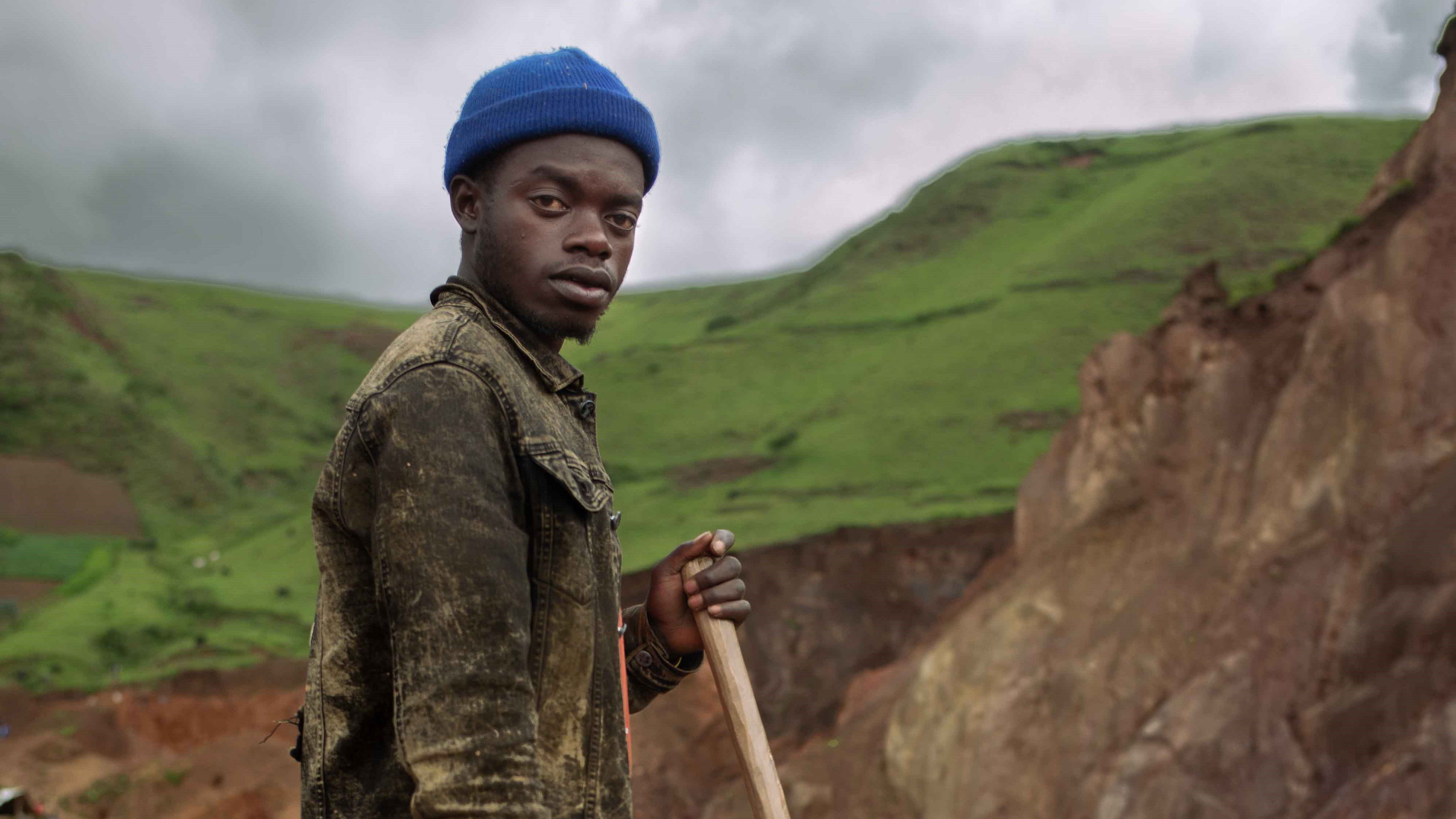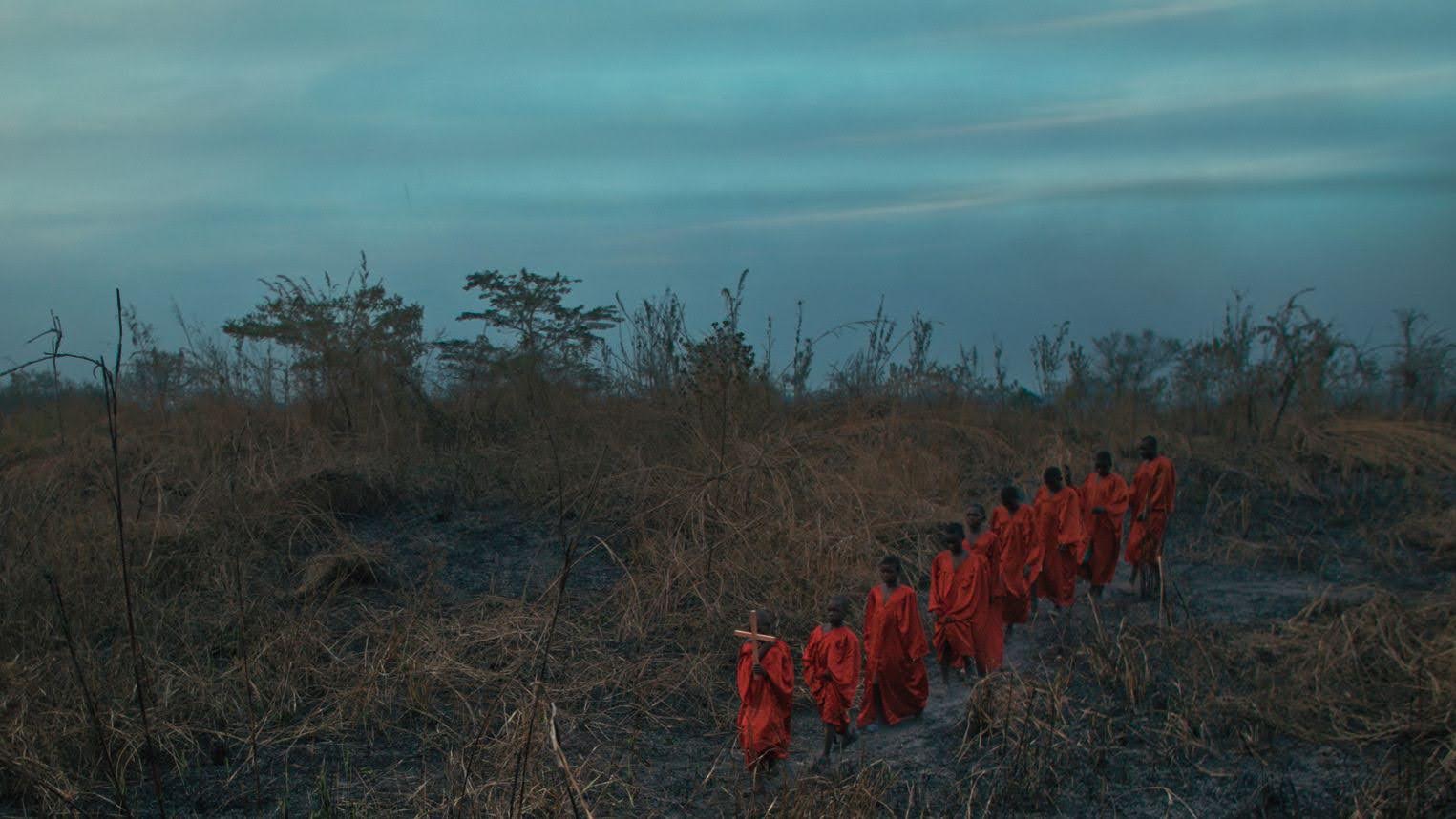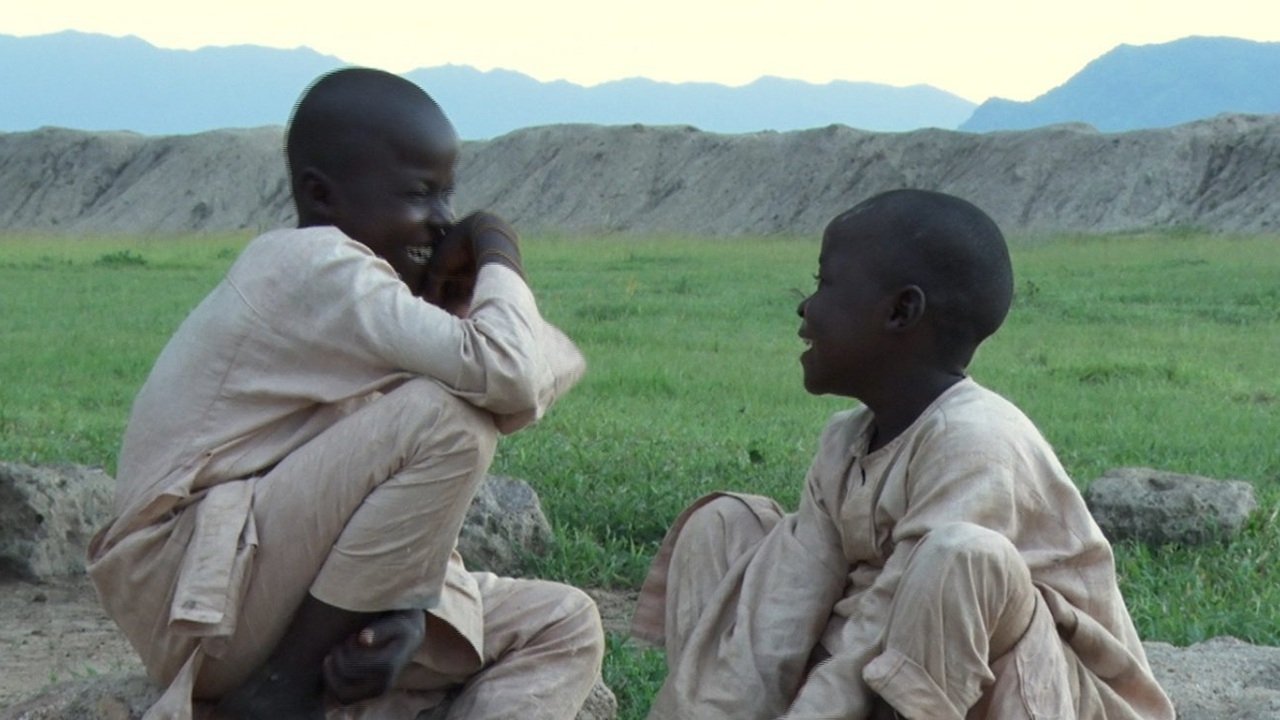Film Information
Set in the Democratic Republic of Congo, Of Mud and Blood revolves around the lives of diggers and miners in mineral-rich Numbi, a rural valley with mixed settlements and dirt roads beside an expanse of mountains.
Its main character is Ujumbe Sabahutu Claude, a digger with great financial struggles that are only partially alleviated by his work in the mines. Many of the diggers, like Ujumbe, grew up impoverished as child fighters or survivors of the genocide in Rwanda.
Their lives are militarised by the conflict and violence of their region. Their lives are also marked by tragedy and suffering, where becoming a digger is their only hope.
Life remains usual in Numbi as villagers play on a sand field with wooden posts during the day. Much of the community gathers to watch. Soccer is a pastime. But death is also usual as the hillsides are littered with gravesites from ethnic conflict, banditry and accidents in the mines. Ujumbe's father was killed by a collapsing block in a mine. There is no protective gear at all and anyone can be injured easily. There are no security measures. No healthcare. No accountability. Just a miner and their pick.
The people die, but the ore remains alive. Looming over Numbi is the threat of an incursion of the M23 militia, who are similarly attracted by the region's vast minerals.
The village is also patriarchal. A woman character refers to sex work as one of the only viable trades for herself. Men decide matters of marriage and dowry on behalf of women. Men are expected to labour in the mines, seeking new veins of wealth. Men work in the government. Men are the teachers in schools. Only boys attend.
There is a strong focus on education in the film.
Mining is talked about in schools, including the role of foreign nations in Congo's mineral economy. Many of the diggers are young and include women as well, standing under armed police guard.
Children are taught about DRC's rich reserves of minerals such as zinc, copper, uranium and of course, coltan. At the same time, the teacher explains that becoming a miner is not desirable due to its dangers, such as bandits, and the value of being educated instead. Most of the children admit to going to the mines after-school, however. The film shows children with spades digging in landfills. This is despite it being outlawed and the police confiscating ore from child diggers. Yet, there are child-headed households where digging is their only sustenance.
Coltan is a spectre haunting the film, as it is spoken about much more than it is shown. As explained in the documentary's opening screen, coltan is a black ore essential for manufacturing the electronic components of smartphones, computers, electrical cars, planes, satellites. The mountains of Congo, bordering Rwanda and Uganda have been in conflict as a result.
A village elder claims that multinationals fuel war to get access to coltan. There have been repeated wars in Numbi to the point where most houses were destroyed and people were buried in mass graves on the hills overlooking the village. Minerals are a curse which have bloodied the fauna, flora, soil and underground.
These costs of extraction are captured in real time. "We ate the mountains with our shovels" Ujumbe claims, while not knowing what becomes of coltan once it is processed. The ore is just seen as a licence to feed his family, who he is at risk of losing if he cannot afford the dowry.
There is no ethical side of coltan mining. The local government has set up processes to be regularised as a digger, but Ujumbe cannot afford the fees. Neither can any of the other diggers. Children diggers are outlawed but they remain widespread. Overall, the state has lost much of its ability to control or regulate the mines.
Local brokers who collect and process the coltan struggle to find a profitable selling point to international markets, who are shown to hold control over its price. The diggers also get only a small fraction of mineral's worth.
There is a local who buys and treats the ore, separating the coltan and cassiterite using magnets, and then sells the coltan to the state mining office. Bags are then registered in a process called "tagging". There are evident flaws in this process of 'ethical mining' but such limitations are also products of the region's instability. To prove the traceability of this process, the film crew follow the coltan and cassiterite all the way from the state depot over bridges, valleys, hillsides and the city. State officials and police are also bribed to not disrupt this process in what is effectively an informal tax.
On show is how laborious digging is because not all ore has coltan and one needs to keep digging deeper and deeper, separating the soil into its parts. There are long scenes of digging to illustrate just how time-consuming and labour-intensive the process is. Notably, there is a very long shot of people picking at the underground and singing. The film effectively displays the great difficulty in being a digger. To find coltan, you must become the mud.
Ujumbe summaries the film succinctly by saying "Here in Numbi, some have blood on their hands, many have mud on their hands, but the whole world has coltan in its pocket"


